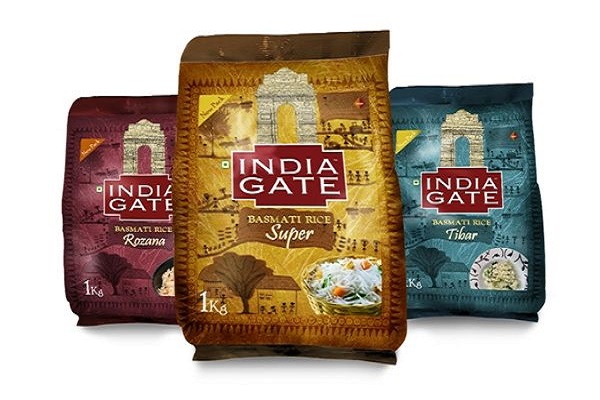The strategy revolves around transitioning loose rice consumers to packaged rice
India’s prominent basmati rice brand, India Gate, is embarking on a strategic shift to intensify its presence in the consumer-packaged basmati rice sector. Under the umbrella of KRBL, the parent company, this move intends to double the consumer-pack basmati rice business within the domestic market over the next five years. This strategy revolves around transitioning loose rice consumers to packaged rice, signalling an ambitious growth trajectory.
In the current landscape, basmati rice’s in-home consumption stands at approximately 1.85 million metric tons. Of this, around 30% is already packaged, while the remaining share constitutes the domain of loose rice consumption. KRBL’s annualized market share of 35% positions it at the forefront. The competition primarily stems from the unbranded and loose basmati rice segment, which constitutes a significant 70% of the industry.
Ayush Gupta, the business head for the domestic market at KRBL, emphasized that the brand’s target is to generate a substantial value of Rs 3,000 crore by FY28 in the consumer-packaged basmati rice segment, in comparison to Rs. 1,450 crores achieved in FY23.
The broader industry perspective anticipates the packaged rice sector to witness remarkable growth, with projections indicating an ascent from the current Rs 4,200 crore to Rs 7,500 crore in the next five years.
Gupta detailed the strategies employed by the company to counter the loose rice market. Strengthening the distribution network is a core focus, with the goal of enhancing retail availability. The brand aims to double its presence from the existing 3.3 lakh outlets to a robust 7 lakh outlets.
To overcome the challenges posed by loose rice players, the company is enhancing its route-to-market (RTM) strategy. The shift involves a comprehensive evaluation of distribution channels, sales tactics, and capabilities. This step underscores the brand’s commitment to ensuring a seamless transition from wholesaler-oriented retailing to active retailing.
Furthermore, KRBL’s approach extends beyond market expansion, involving the launch of regional and premium rice varieties. This strategic diversification is expected to tap into untapped segments and significantly expand the brand’s Total Addressable Market (TAM). Gupta highlighted that varieties like Sona Masoori, Kollam, and Gobindobhog, targeting regional preferences, represent a market size nearly ten times that of the Basmati market.
In parallel with these strategic endeavours, KRBL is investing Rs 250 crore in opening three new manufacturing plants in Gujarat, Karnataka, and Madhya Pradesh. With the Gujarat facility operational since June, this move showcases the company’s commitment to innovation, market expansion, and sustained growth in the dynamic rice industry.


